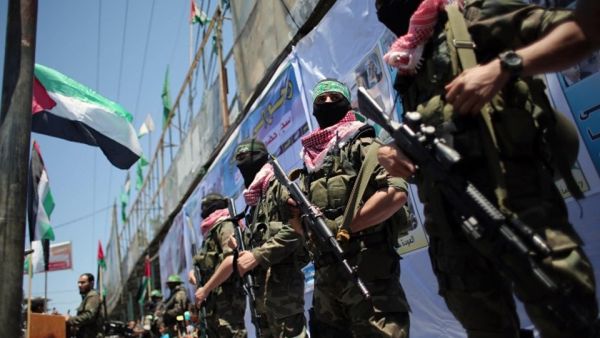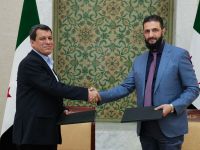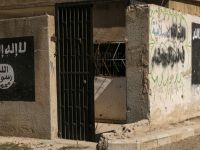Hamas authorities in the Gaza Strip after dawn prayers on Tuesday executed three Palestinians allegedly found guilty for murder, following a wave of outcry from members of the international community urging Hamas to cancel the decision.
The Hamas-run general prosecution said that the concerned authorities responsible for implementing the decision had found the three guilty of “terrifying” crimes.
The death penalty, added their statement, was carried out after all the necessary legal procedures had been completed, despite having not been ratified by the Palestinian President Mahmoud Abbas as required by Palestinian law.
The executions took place at the police headquarters in Gaza City and were attended by family members of those who had reportedly been killed by the three convicts, and not held in public as had been widely expected in the days leading up the executions.
The families, according to general prosecution, rejected an eleventh hour offer to pardon the three convicted murderers.
Two of those convicted were executed as civilians by hanging and the third was executed as a “militant” by firing squad, according to law in the Gaza Strip. The political affiliation of the supposed militant was not immediately clear.
Those executed were identified as Muhammad Otham, found guilty of the murder of Abd al-Qadir Barhoum from Rafah; Yousif Abu Shamla who was found guilty of murdering Ulayyan Telbani from Deir al-Balah; and Ahmad Sharab, found guilty of murdering Fadil al-Astal from Khan Younis.
The Gaza prosecution added in their statement that the death penalty “is meant to deter those who may think of committing such crimes.”
The Al-Astal family announced that they would open a wake to receive condolences for three days.
Executions for at least 10 other alleged convicted murderers were also approved in a decision last week by the Palestinian Legislative Council (PLC) in the Gaza Strip.
While the exact number of approved executions was unclear, on May 20, senior Hamas official and PLC member Khalil al-Hayya implied that 13 people convicted of murder, mostly in connection with armed robberies, had exhausted their appeals, and were therefore set to be executed.
Following approval of the executions, reportedly to be held in public, human rights group Amnesty International, EU missions in Jerusalem and Ramallah, and the UN all admonished the practice of the death penalty and urged the PLC to reverse the decision.
UN Special Coordinator for the Middle East Peace Process Nickolay Mladenov said of the seemingly hasty executions: “Palestine is one and Gaza and the West Bank are its two integral parts,” he said. “I urge Hamas not to carry out these executions and I call on President Abbas to establish a moratorium on the implementation of the death penalty.”
Under Palestinian law, all death sentences must be ratified by the Palestinian president before they can be carried out. However, since 2010 the Hamas de facto administration in Gaza has carried out executions periodically without receiving approval from Palestinian President Mahmoud Abbas.
Hamas officials maintain that due to the indefinite postponement of presidential and parliamentary elections in the Palestinian territory, and the failure of the Palestinian Authority to assume most of its functions in the besieged coastal enclave, authority for ratifying death sentences lies with the PLC in Gaza.








